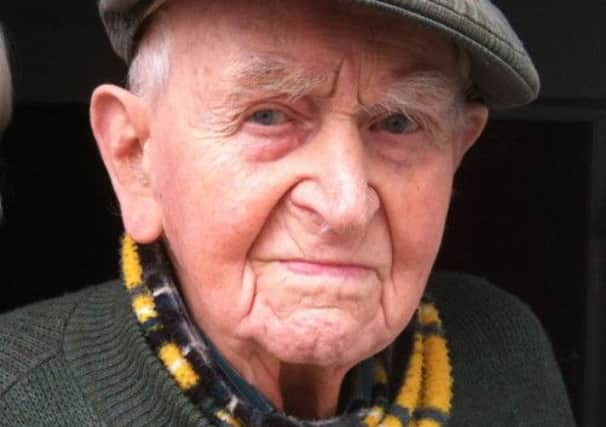Stephen Allatt


He was born on June 1, 1912, in Leeds Road, Bradford, to Arthur and Mary Allatt. He was the youngest of three brothers. Arthur was a butcher and ran the meat department at the Co-op in Great Horton.
The family’s small piggery in West Bowling kept them supplied with food during the tough years following the first World War and through the Great Depression, unlike many other families.
Advertisement
Hide AdAdvertisement
Hide AdHis earliest memories dated back to 1914, when he was two, and a family holiday in Morecambe. He recalled country lanes filled with wild roses, and, from the arms of his mother, Mary Maria, watching soldiers galloping horse drawn guns across the Bay, preparing to go to war.
Like so many others, the family was hit by the conflict and took in an orphaned cousin, Arthur, whose father died in the trenches.
The Allatts settled in Silverdale Road, Bradford, where they opened their own butcher’s shop. Life above the shop was tight for a family of six but Stephen would remember happy evenings spent around the kitchen table – “Ma baking at one end, Dad wrapping a hen at the other, and me, bro’s Tom, Charles and Arthur tinkering with wireless sets, bike parts and the like in between”. Stephen was encouraged to join the family business but in those days being a butcher meant also slaughtering the animals, something that did not appeal to him.
In 1926, at the age of 14, Stephen began working as an apprentice plumber. Working through the years of poverty, without machines or vehicles, was tough on all trades.
Advertisement
Hide AdAdvertisement
Hide AdHandcarts were used to carry all tools, equipment, lead piping, boilers and even porcelain bathroom pieces, and could be tricky to manoeuvre on Bradford’s steeper streets. But he remembered many lighter moments too, including playing football at lunchtime with an old petrol can.
Mr Allatt also spent several weeks working in Oldham, witnessing poverty there far worse than in Bradford, with lines of unemployed at every street corner. A local labourer, Percy, was hired for the job and wept when he received his first week’s wages, admitting he and his family were living on “tripe mainly”, carrying a bucket down to the abattoir and picking up whatever meagre scrapings they could afford.
He married printworker Olga James in 1938. He was already a keen cyclist and introduced her to the sport by way of a tandem. The two subsequently enjoyed many holidays on two wheels. Olga also followed her husband in joining the Christian Science church and both remained members for the rest of their lives.
Soon after their wedding, the young couple moved to Didcot, Oxfordshire, where Mr Allatt led the year-long renovations of a housing estate. He was fascinated by the differences between life in the lush Thames Valley and the chilly heights of Bradford, the most notable of which was a lack of friendly cycling cafés selling tea at fourpence a pot.
Advertisement
Hide AdAdvertisement
Hide AdAfter their return to Bradford, he spent four years serving as a Bombardier in the Royal Artillery. He rarely spoke of his wartime experiences.
After being de-mobbed in October 1945 he returned to Bradford and to plumbing, eventually setting up his own business. The couple moved to Wibsey and had three daughters, Anne, Isobel and Rosemary.
The end of the war saw a big push to upgrade Britain’s ageing houses and Stephen fitted thousands of indoor bathrooms and toilets in homes where previously the “privy” had been shared with neighbours.
He transformed much of Saltaire Village, West Bowling and other areas, and recalled people turning the taps on and off repeatedly, amazed at the stream of hot water. He might have become a wealthy man but refused to charge high prices, getting most satisfaction from seeing the improvement to people’s lives, and even late at night rarely failed to turn out to an emergency call.
Advertisement
Hide AdAdvertisement
Hide AdHe retired in 1977. Five years later he and Olga moved to a smallholding near Otley, living next door to daughter Isobel and her husband, Gaizka. Here they raised hens, pigs, and other livestock. When his wife died in 1998, Mr Allatt stayed active, caring for his animals and baking his own bread.
He wrote several books about his experiences as a plumber and his recollections of life in Bradford in the early 20th century.
The books were distributed among his family.
He is survived by his daughters Anne and Isobel, ten grandchildren and eight great-grandchildren.